Perhaps you’re a student, retiree, downsized employee or stay-at-home parent who’s heard that home-based opportunities for online proofreading jobs abound and would like to get your feet wet?
A wise decision!
There’s explosive growth in online freelance proofreading ahead of us with an increasing number of the Internet users (as shown below) and over 1.94 billion websites and 4 million blog posts published on the Internet every single day.
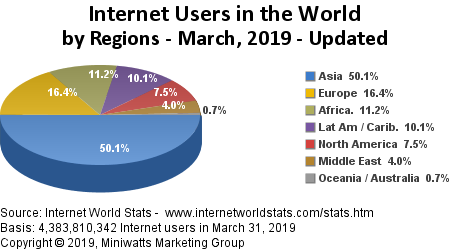
In today’s rapid generation and spread of digital content, you can make money working online proofreading various content types such as:
- marketing materials
- books or eBooks
- websites
- blog posts
- newsletters
- social media content
- research papers
- reports
- legal transcripts
- business documents
- manuscripts of authors
- essays or dissertations
- white papers
- product manuals and
- many other online or offline content forms that require proofreading.
Who knows – perhaps you can kick-start an online proofreading career so that you can finally become your own boss?
Or you can land a well-paid freelance gig either in-house or remote to make some extra cash on the side?
BUT…
You’re NOT certain about many details related to this important life step, such as:
- what exactly proofreaders’ job description involves
- whether proofreading differs from (copy)editing and how (if yes)
- whether you have the necessary qualifications, i.e. education and competence to become a proofreader
- how you can master your proofreading skills
- whether you can get hired even with NO previous experience
- how to become a freelance proofreader from your home
- whether you can really make money proofreading and how much
- how to start your own proofreading business and many more other relevant questions.
When it comes to proofreading jobs, whatever your goal is, there’s some fundamental information you need to know even before you reach your final decision and choose the direction to take.
That’s why we’ve collated your most frequently asked questions about proofreading jobs and provided as comprehensive and precise answers as we could to help you find your way.
So, here we go.
What does a freelance proofreader do?
Freelance, remote, home-based, online or offline, in-house proofreaders basically do the same type of work regardless of their location and industry.
A proofreaders job is to review a final draft of content right before it gets published and to correct any grammatical, spelling, punctuation and typographical errors.
A proofreader is responsible for scanning the whole document thoroughly several times in order to detect and correct any language usage and perhaps minor formatting mistakes, as well as to verify consistency (e.g. language variations – British or American English, captions for illustrations, citations).
Proofreaders should NOT rely on spell-checkers or grammar-checking software but go beyond those tools.
In its essence, proofreading implies the final quality check and tidy-up of the content before its publication including not only words but also:
- table of contents
- other tables
- graphs
- charts
- images
- illustrations
- captions
- footnotes
- appendices
- cross-references
- page numbers
- page breaks
- layout.
And here’s also what a proofreader does NOT do.
A proofreader doesn’t typically rewrite or rephrase the text.
Extensive text changes, indexing, layout design, re-editing or any other changes that require specialist skills are within the scope of duties of an editor or another relevant expert and is done before a piece of writing even gets to the proofreader.
Sometimes it’s difficult for people to fully understand the difference between an editor’s and a proofreader’s scope of duties so we’re going to explain it briefly to avoid further confusion and clarify expectations.
What is the difference between an editor and a proofreader?
First of all, you need to know that there are different types of editors with different responsibilities.
While some of them deal with the overall content structure and flow, others dive deeper into polishing up a writer’s style and syntax.
For instance, general editors ensure that:
- a writer stays on topic,
- the content is well-structured, clear and easy to follow with smooth transitions between ideas and
- the style and tone are consistent.
So, a general editor does some rewriting where necessary to polish up content, e.g. in cases of:
- confusing and unclear parts of the text
- sentences which are difficult to read
- overused and repeated words or phrases
- long paragraphs and other similar instances.
Another common type of editor is a copyeditor.
OK. It’s getting more confusing now, right?
No worries.
Here comes a succinct explanation of what is copyediting vs proofreading by The Society for Editors and Proofreaders:
The proofreader reads the copy for consistency in usage and layout, for accuracy in the text and references and for typesetting errors. The proofreader, however, is only acting as a quality check, making sure that the copy-editor or typesetter has not missed something. He or she is not responsible for overall consistency and accuracy.
A copy-editor makes sure that an author’s raw text, or copy, is correct in terms of spelling and grammar and is easy to read so that readers can grasp his or her ideas. A copy-editor also tries to prevent embarrassing errors of fact, alert the publisher to any possible legal problems and ensure that the typesetter can do a good job.
Copyeditors’ work precedes the work of proofreaders and includes making suggestions and slight rewrites where needed.
A copyeditor’s work somewhat overlaps with a proofreader’s work because this type of editor also checks the content for grammar, spelling and punctuation mistakes.
In addition to that, a copyeditor deals with syntax and other language issues which include pointing out and correcting:
- the text coherence
- style and voice consistency
- incorrect facts
- ambiguous parts of the text
- foreign words, idioms, clichés
- fonts
- capitalization
- citations
- hyphenation
- numerals and the like
In other words, copyeditors and editors, in general, need to be experts in particular subject matters.
Their approach to content is a bit more technical and besides a high level of expertise, their work requires a lot of research and an eagle eye for detail but also an ability to look at the bigger picture to ensure consistency.
Now you know the differences between proofreading and (copy)editing work.
But, bear in mind that your chances of landing a highly-paid online job are significantly increased if you also know at least the (copy)editing fundamentals.
Nowadays, it’s also critical for your success as a proofreader to know the basic copyediting techniques because the opportunities for attracting more clients and boosting your income are growing with your skillset.
How much does a freelance proofreader earn?
Even though proofreaders who work in real offline offices typically make around $50,000 per year, it’s not that easy to figure out average earnings of work-at-home freelance proofreaders.
Wondering why?
Well, because they mostly get paid by the job ie. project, hour, word or page and their rates are negotiable depending on the work difficulty, turnaround time, deadlines, scope of work, their expertise and other similar cost determinants.
Still, we’ve put together the most common research findings so that you get the idea of how much money you can expect to make as a proofreader.
So, let’s answer the question all those skeptics out there ask:
‘Can you really make money proofreading?’
According to Glassdoor’s latest updates by 228 US proofreaders shown below, the average yearly salary is slightly lower than stated by the other following sources – $36,290.
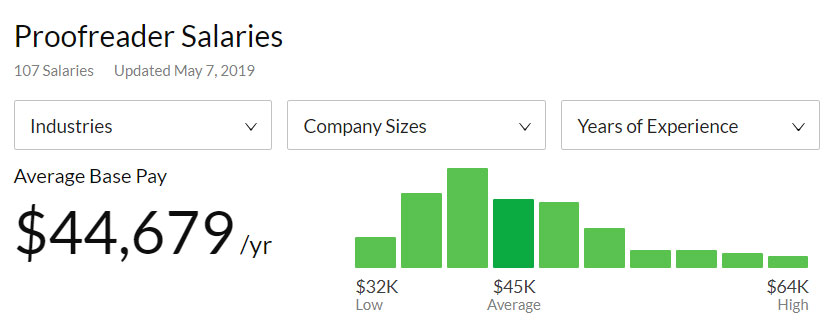
Another source, Salary.com claims that a proofreader earns anywhere from $44,516 to $57,927 a year.
Similarly, MarketingProfs 2018 Salary Guide states that a proofreader can earn between $41,500 and $72,750 per year.
According to Ziprecruiter, ‘a Freelance Proofreader annual salary ranges from $17,000 to $105,000 nationally’.
So, what do you think now – can you make a good living as a proofreader?
We bet you can.
Another money-related FAQ is ‘How much do proofreaders make per hour?’
Generally speaking, entry-level online proofreaders earn around $10 per hour, while more experienced freelance proofreaders get significantly higher hourly rates starting from at least $15 or $20 yo to $45/hr or much higher depending on their expertise.
The USA Bureau of Labor Statistics estimates national mean hourly wage of $19.43 for proofreaders with annual wage averaging at $40,410, while Salary.com claims that the hourly wage for a proofreader in the United States ranges from $21 to $28 with the average $24 as of January 31, 2019.
Similarly, according to The Writers Bureau, The National Union of Journalists suggests that freelance proofreaders in the UK charge from £21 per hour.
Also, many proofreaders typically charge $0.02 per word or $3 per page if they decide to set their rates on a per-word or per-page basis.
In a nutshell, a skilled online proofreader whether located in the USA, Australia, Asia, Africa, the UK or any other European country, i.e.wherever in the world they are, can ensure a consistent stream of high income.
It’s all totally up to you, your skills, willingness to learn and progress, but a lucrative online career in proofreading is unquestionably worth the effort because it can provide you and your whole family with a comfortable living.
What qualifications do you need to be a proofreader?
This is among the first questions anyone considering proofreading as a career option always asks.
So, here’s a detailed answer for all those who are wondering whether you need any special qualifications and education to be a proofreader.
If you’re a natural sharp-eyed error catcher with an irresistible urge to fix each typo, grammar or any other similar mistake as soon as you spot it, then your inborn talent paired with some skills and knowledge you can gain even along the way is a perfect starting point on this career path.
The essential skills you need to acquire to become a proofreader are:
- extensive knowledge of the English language
- outstanding written and oral communication
- the ability to meet deadlines and
- a profound understanding of the Internet and computers, especially tools and software proofreaders commonly use.
You could research precise requirements to become a proofreader presented by Study.com (video included) to find out about formal qualifications summarised below.
Not only can you learn about the job description but also explore the step-by-step process to start a career in proofreading.

(Note: Not all employers require formal qualifications as above. More information on this topic can be found further in the text.)
In addition, as a professional proofreader, you must be familiar with at least a several most popular style guides such as The Associated Press Stylebook (its online version), The Chicago Manual of Style (its online version) and others.
View this post on Instagram
Online proofreaders make text corrections on a computer screen relying mostly on MS Word Track Changes feature, so you must be highly competent in this system.
Also, your familiarity with traditional proofreader marks goes without saying in case you need to work on printed material.
It’s not a rare occasion that skilled freelance proofreaders can barely make a living.
Skills, experience and the other requirements mentioned above that can be taught and learned are necessary but do not guarantee success.
Success typically comes with your innate talent, professional attitude, hard work, dedication to lifelong learning i.e. willingness to undergo professional training and a bit of luck.
So, the requirements you need to fulfill if you want to become not just any but a successful professional proofreader can be summarised as:
- solid general knowledge accompanied by a wide vocabulary
- the ability to express your ideas succinctly and clearly
- the ability to stay focused for long periods
- being a fast and meticulous eagle-eyed reader
- being computer savvy
- having tact, strong self-discipline and being extremely dependable and self-motivated
- constantly updating your knowledge and honing your skills to keep abreast of the latest changes
- wide experience of different types of proofreading (and possibly copy-editing to increase your chances of landing a better-paid job).
Now you have a clearer overall picture or what it takes to become an online proofreader.
However, many people are interested in the next answer.
How can I become a proofreader without a degree?
As we’ve already mentioned, the lack of a university degree in English or journalism is not an obstacle to becoming a freelance proofreader as long as you have most of these traits which are a confirmation that you’ve chosen the right way.
You can land a proofreading job from home without these formal qualifications but taking an online or offline proofreading course to obtain certification is highly recommendable because it will increase your chances on the competitive market.
The SfEP courses are examples of good-quality online training:
(Note: More about proofreading courses and other useful resources can be found further in the text.)
This short SfEP proofreading test can help you find out how good you’d be at proofreading in case you’re having second thoughts about this career path.
And if you’re interested in ways you can perfect your proofreading skills, just keep reading.
How can I improve my proofreading skills?
As you’ve already realized, proofreading is not just simple catching and correcting surface errors.
Quite the opposite.
It also entails following a writer’s voice and particular style guides, as well as working with editing software, being familiar with traditional proofreading marks and other deeper considerations.
That’s why it’s important that you’re trained in proofreading skills.
Even if any formal training or certification is not required for your prospective or current position, brushing up on your skills won’t hurt but ensure that you can work efficiently and confidently.
We’ve gathered some recommended resources to help you master your proofreading skills and start a successful career, so bear with us.
You can rapidly gain the necessary proofreading knowledge, specialize in your field of interest (e.g. academic, medical, financial, legal), learn invaluable industry tricks and more with the help of good-quality online training.
Here are some options for you to explore (follow the links to learn more).
Proofreading Camp
Proofreading Camp is one of the specialised training programs developed by the professionals at Scribendi, a renowned online proofreading and editing company. The course takes around 40 hours to complete and you can check the modules here.
Proofreading course by College of Media and Publishing
Online proofreading and editing course by College of Media and Publishing is a self-paced course equally suitable for beginners and skilled proofreaders who want to get a recognized qualification and/or start their own freelance proofreading business.
Proofreading Academy
A comprehensive online course by Proofreading Academy can teach you modern proofreading techniques so that you can start proofreading for a living. Here’s what you’ll learn and here’s a detailed course content description.
Another perk is that Proofreading Academy offers its graduates who pass their course with 80% or greater freelance work guarantee. Isn’t it cool?
Proofread Anywhere
You may also want to find out more about the industry by checking out this general online workshop for proofreaders or free 7-day proofreading e-course from Proofread Anywhere.
Art of Proofreading online courses
Proofreading 101 by Art of Proofreading is a free intro course that can teach you what it takes to start proofreading professionally. If you like it, you may want to proceed to their next training programme, High-Level Proofreading Pro, to learn how to work on different kinds of content.
The Pen Institute
Proofreading 101 Group Course by The Pen Institute is a four-week course designed to sharpen your proofreading skills and prepare you to proofread books based on The Chicago Manual of Style (currently closed for registration).
Australian College
Applied Copyediting and Proofreading is a self-paced online course by Australian College which covers all the essentials you need to get started as a freelance proofreader or copyeditor.
| Reminder: If enrolling in a course work best for you, make sure you learn how to choose an online proofreading course and how to evaluate it (e.g. see what you can learn and what to expect) before you decide which one to take to improve your skills. |
You can also find a proofreading course that better suits your needs and budget at other teaching platforms such as Udemy or Skillshare.
Another good idea is perhaps to join an online forum or a similar professional group so that you can talk to other freelance proofreaders, learn from them and keep your skills up to snuff.
So, is your knowledge satisfactory or should you practice more?
If you need further practice, consider enrolling in a course and doing a few exercises every day to hone your skills.
Isn’t practicing proofreading skills fun with all these resources?
Once you learn how to proofread, be aware that there are numerous handy resources and tools that can make a life and work of a proofreader much easier. So, make sure you’re familiar with at least the basic ones (and pay special attention to improvement workbooks when you check the previous link).
Some well-known useful editing tools and apps that can check your grammar and spelling or dictionaries you could use, for example:
- Grammarly
- Hemingway
- ProWritingAid
- Merriam Webster’s Dictionary Online and many others.
BUT, be extremely careful with them and do NOT rely on them 100% unless you want to achieve this effect:
Funny?
Well, not really if it resembles your work.
Nice, you got it.
Now that you’re perfectly aware of the importance of your proofreading knowledge no tool can ever replace, let’s see what else can help you boost it.
Did you know that it’s possible to hone your proofreading skills successfully if you devote only 20 minutes to it every day?
This book will show you how.
The Best Punctuation Book, Period: A Comprehensive Guide for Every Writer, Editor, Student, and Businessperson is another super useful book you may need and following Grammar Girl: Quick and Dirty Tips also sounds like a good idea for learning.
20 tips to help you proofread like a pro and some more tips on how to proofread can help you minimize the chances to miss spotting and correcting any errors.
And here’s similar expert advice:
Read Your Copy Four Times to Improve Your Proofreading
The first time, check for deviations in text, e.g., words typed twice in a row (the the), typographical errors, and incorrect word breaks. For example, consider an erroneous word break that’s made with the word “therapist.” If this word is hyphenated in the wrong place, it becomes the “the-rapist.” That doesn’t leave a good impression!
The second time, read for fact or format inconsistency, poor word usage, weak sentence structure, subject/verb disagreements, repetition of thoughts or phrases, and incorrect math.
On the third read, check for language mechanics such as capitalization, punctuation, spelling, and grammar.
The fourth read includes checking overall format—type size, margins, alignment, spacing, positioning (headlines, subheads, copy, footnotes, indentations), pagination, and general appearance.
Source: Karen Saunders & Associates: How to Improve Your Proofreading Skills
A lot to learn, right?
Good news:
NO need for you to learn everything right away.
Research and life-long learning is an inseparable part of every proofreader’s life because language is alive so rules and exceptions change and style guides often get updated.
After all, even if you’re experienced and familiar with everything a proofreader should know, there’s always something new to learn, e.g. to get better acquainted with UK, US, Australian or Canadian English language varieties as they differ.
So, get yourself motivated to learn and start sharpening your proofreading skills today.
How do I become an online proofreader?
For all those who have always wanted to work from home and wondered ‘How do I become a proofreader online?’, here comes an answer in a nutshell.
After you’ve developed all the necessary proofreading, computer and other business skills, familiarised yourself with the most commonly used style guides and perhaps specialized in a specific area such as medical, legal or scientific, it’s time to start working.
To become an online proofreader i.e. get a proofreading job, you may:
- search the Internet and look for work at various websites that specialize in providing proofreading and editing services
- search for job openings on popular online job boards for freelancers
- do some research and directly contact owners of websites where you notice a lot of written content and inquire about a vacant position for a proofreader
- perhaps contact start-ups or other small businesses and offer to proofread their website pro bono if they refer you to other prospective clients
- build your own website on which you’ll advertise your proofreading services
For more detailed information on the topic, please, refer to our guides and sources linked above or to other Q&As on this page.
Where can I get proofreading jobs online?
To be aware of all the work opportunities out there, you need to know who uses proofreaders’ services. For instance, you may get hired by:
- publishers
- website owners
- authors
- bloggers
- advertising agencies
- social media marketers
- students
- small businesses
- big brands like Apple or Coca-Cola etc.
So, make sure you network with those who may need your services. Don’t wait for them to find you. Instead, reach out to them first.
Creating your website to promote your proofreading services is another smart step to take if you consider starting your proofreading business. (You can learn more about it in the following subsection.)
You could also utilize popular online job boards to find remote freelance proofreading jobs such as:
Then, you can explore websites of companies that offer online proofreading services and check their latest job postings, vacancies, ‘work for us’ or career opportunity pages, for example:
Many of these companies or agencies require that you pass their tests and upload your updated and detailed resume or register on their websites.
You can find many more legitimate online companies in our comprehensive list linked here or in blog posts on the topic below, so take a peek and choose what suits your needs and skill set best.
Unfortunately, there are many unscrupulous scammers on the Internet and you have to learn how to recognize them so that you don’t fall prey to them.
But how?
If it looks like a duck, swims like a duck, and quacks like a duck, then it probably is a duck.
In other words, if someone is offering you an unrealistic work opportunity which sounds too good to be true or demands up-front pay, it’s probably a scam.
If you’re not sure, better double and triple-check with the Better Business Bureau whether the company offering you work is legitimate or not.
Better safe than sorry, right?
You could also let us investigate for you. Just follow the link to submit a review request and we’ll do all the research for you.
Learn how you can land a well-paid legitimate online proofreading job in three simple steps.
And when you get your first proofreading job, you may want to take the advice of a seasoned expert.
In that case, watch the video below, in which the SfEP’s internet director, John Espirian, shares 10 tips for handling your first proofreading job aimed at newbie proofreaders who are getting started with their career.
How do I start my own proofreading business?
Online proofreaders are in buoyant demand due to the exponential growth in digital publishing, so it’s the perfect moment for launching your own proofreading business, isn’t it?
You can benefit from ample opportunity to get hired regularly without much hassle. You just need to know HOW to start it, right?
So, let’s get to the point immediately!
In short, several fundamental steps you need to take towards starting your home-based proofreading business are:
- decide what type of proofreading services you’ll offer
- define and analyze your target market and audience
- establish your rates and check your account to estimate your financial situation
- consider your business structure, i.e. whether you’ll set up a limited liability company (LLC) or operate as a sole proprietor
- check and obtain all the necessary local business licences and permits
- come up with a catchy business name
- make sure you have all the essential tools for the job
- build your portfolio and master your skills
- start establishing your business online presence by creating a website and setting up carefully selected social media accounts
- launch your marketing campaign and promote your services every day to get clients
- develop a mindset for success
Obviously, the critical phases of setting up your own online proofreading business are coming up with a viable business plan and creating your website or hiring a professional to build it for you.
An example of a good proofreading website looks like the one we’ve linked to, so check it out and learn how to plan and make your website.
But, first things first.
The same author shares her experience and knowledge about setting up a freelance proofreading business and can teach you:
- how to put together a business plan
- how to set up your website and social media accounts and
- what tools you need for the job among many other helpful tips, so go through them.
Another similar guide on starting a proofreading business also covers all the basics you need to know, such as:
- whether the business is a good match for you
- what your daily activities will look like once you become a proofreading business owner
- what your target market is
- whether your business has the potential to grow
- how high your startup costs are
- necessary legal considerations you should be aware of and much more.
In addition, a successful UK freelance proofreader and entrepreneur Louise Harnby generously shares her 20 tips to help you set up a freelance proofreading business ‘to ensure you get off to a good start and develop good-sense habits that will benefit you well into the future’ as she says.
As for your business website, we’d like to point out that you should observe it as a place where you’ll primarily:
- showcase your expertise and qualifications and point out how your skills differentiate you from other proofreaders,
- share your previous proofreading work samples with your prospective clients so that they know what they can expect from you
- build trust by displaying some highly favorable testimonials or reviews from your previous clients
- market your business, reach out to your network and cultivate your professional relationships.
Furthermore, here are some valuable resources to help you manage taxes as a freelancer.
If you’re from the United States, A Freelancer’s Guide to Taxes will help you to avoid any problems with the IRS and another guide will teach you How to Manage Tax as a Freelance Editor, which is similar to proofreading.
These could be helpful articles for Australian-based entrepreneurs:
- Tax Deductions for Freelancers
- How I Manage My Income As A Freelancer
- What new freelance writers need to know about tax (could be applied to proofreaders)
- 9 Questions New Freelancers Always Ask (various other information relevant for Australian proofreaders)
And here’s the information useful for the UK proofreaders:
- Freelancers and tax: Setting up as a freelancer
- Essential financial information for freelance journalists (it’s similar for proofreaders and you may benefit from this editors and proofreaders professional indemnity insurance solution).
An Editorial Freelancer’s Guide to Business Entities can also help you make better a decision and choose the right business structure so that you can have tax advantages.
Even better:
If you need more help to get started, consider joining the Editorial Freelancers Association, a professional group which offers not only fantastic resources such as their specialised booklets or sample freelancer-client contract and invoice, but the necessary assistance and job listings for newbies in the world of proofreading.
You could also benefit from their guides:
- Freelancing 101: What You Need to Know to Run a Successful Business
- Freelancing 101: Launching Your Editorial Business (also applicable to a proofreading business).
OK. Now you’re equipped with all the essentials necessary for running your own company so that you may feel ready for your leap of faith.
Eager to grab all the freelance freedom?
However, before committing yourself to this business goal, make sure you’ve seriously considered all the pros and cons of starting a proofreading business.
It will help you make an informed final decision because this is definitely NOT a decision you make in five minutes, especially if you’re a newbie.
In conclusion
There you have it – the most common FAQs about proofreading jobs (mostly online) thoroughly researched and fully answered.
We hope that you’ll soon find that profitable and flexible home-based proofreading job you will love. Or even better: that you’ll launch your own proofreading business.
Ready to take the plunge?
Looking forward to seeing you working on your own terms.
Best of luck!
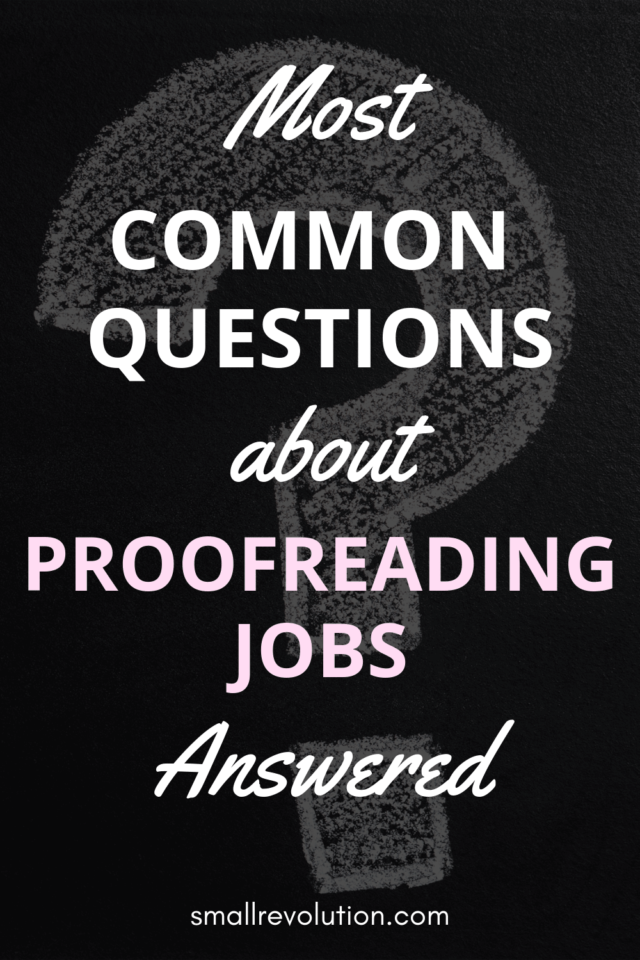


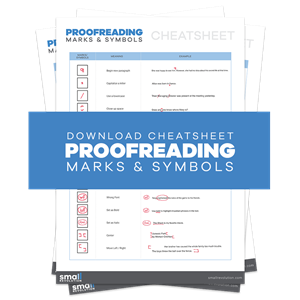
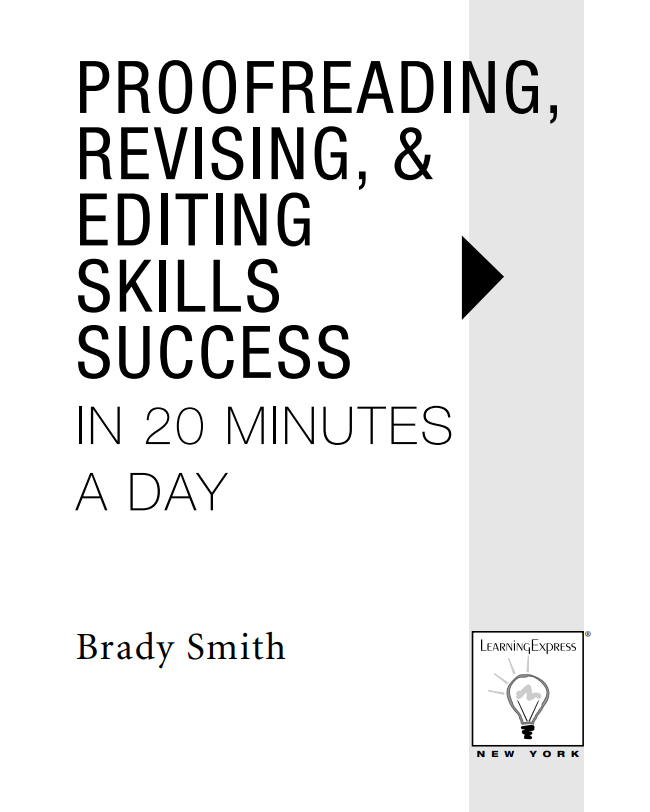





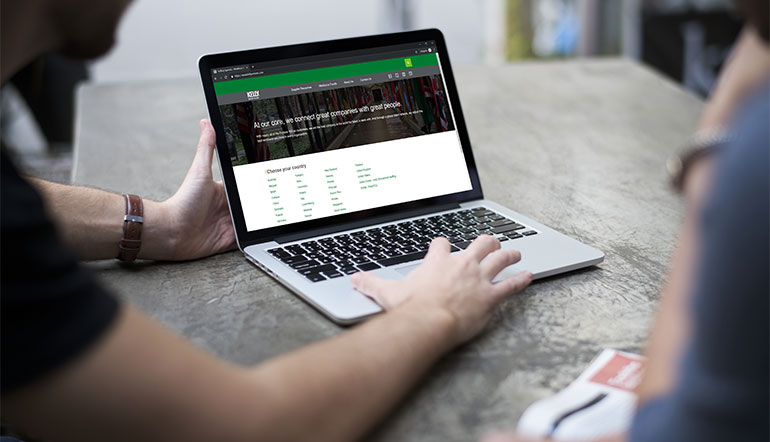
4 Comments
Late Night jobs are bit difficult for girls because they have to face problems during up down but the fact is that you can earn more from night shift. If late night jobs are available work from home that is amazing offer. Proofreading is one of them jobs that can be do from home. Your blog suggests amazing about proofreading. You picked right points why everyone avoid to read anything you write. Your blog is good for a person who just started his career as a Proofreader, it is theory work. Thanks for sharing your views and tips
I am Proofreader and i got exact answers from your blog about the questions that are remaining for me. I am Digital Marketer and your that point what should do a freelance proofreading is blessing for me. I got many ideas from your blog. Thanks!
That is a very complete post!
I believe that there still is a growing demand for proofreaders, so this is very helpful.
whoah this blog is great i love reading your articles. Keep up the great work! You know, a lot of people are looking around for this info, you could help them greatly.